Find Help
More Items From Ergsy search
-
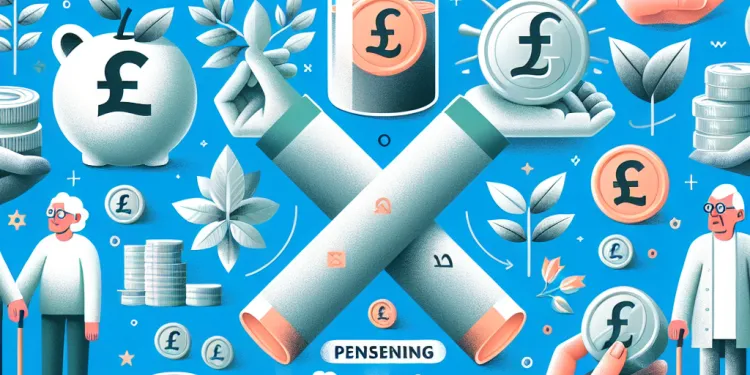
What is the impact on pensioners if a pension system collapses?
Relevance: 100%
-
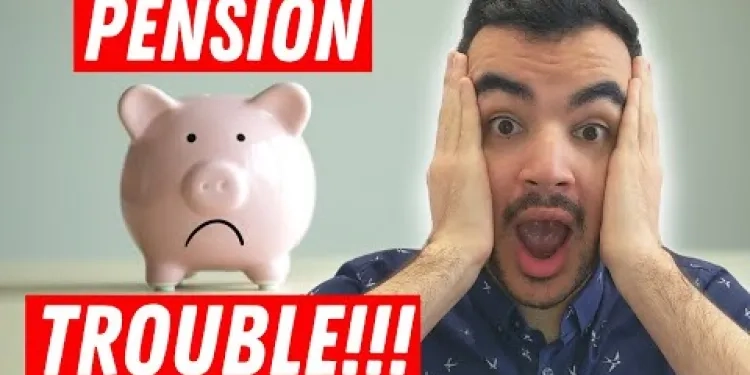
What Happens When Pensions Go Bust! | Pension System Collapse UK
Relevance: 89%
-

How does insolvency impact pension funds?
Relevance: 42%
-
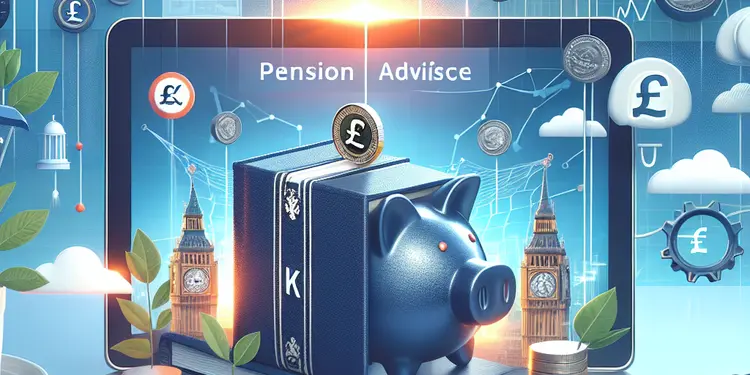
Is the Pension Wise service reliable for pension advice?
Relevance: 39%
-

What is the basic pension in the UK?
Relevance: 38%
-
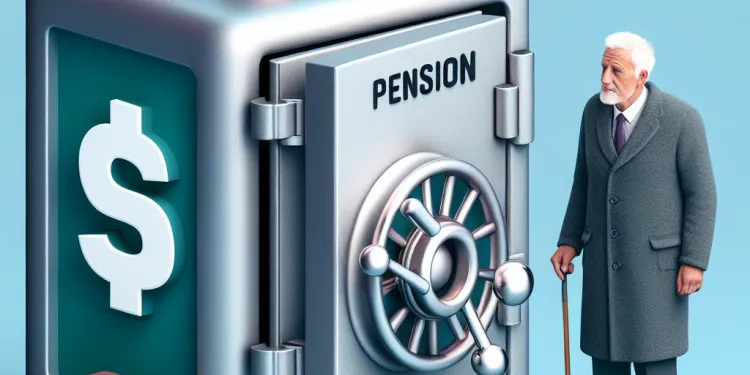
Can pensioners lose all their money if a pension provider fails?
Relevance: 38%
-

Is there a difference between the basic State Pension and the new State Pension?
Relevance: 38%
-

Pension rights for Firefighters in the UK
Relevance: 37%
-
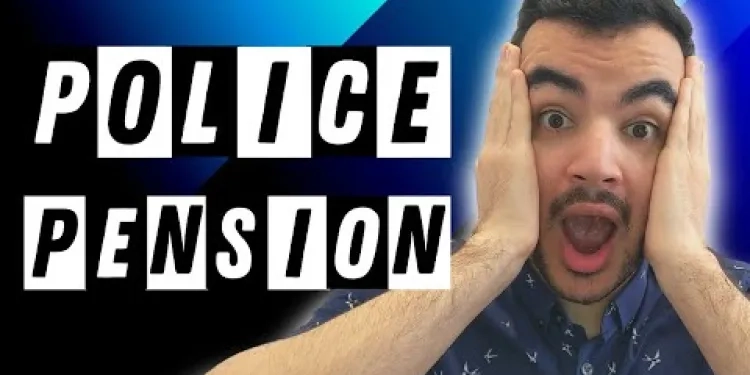
Police Pension Explained
Relevance: 37%
-

Can pension scheme members influence how their pension is managed?
Relevance: 37%
-

Can I get pension advice directly from pension fund providers?
Relevance: 36%
-

Unfreezing the Truth The UK's Frozen Pensions
Relevance: 36%
-
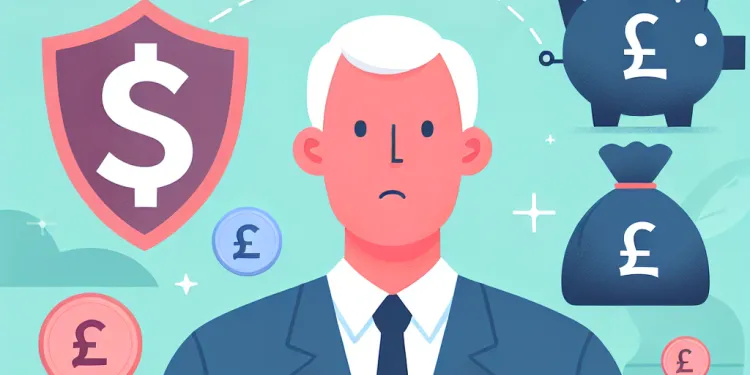
What is the Pension Protection Fund?
Relevance: 36%
-

Are firefighter pension benefits taxable?
Relevance: 36%
-

Will I qualify for the new state pension?
Relevance: 36%
-
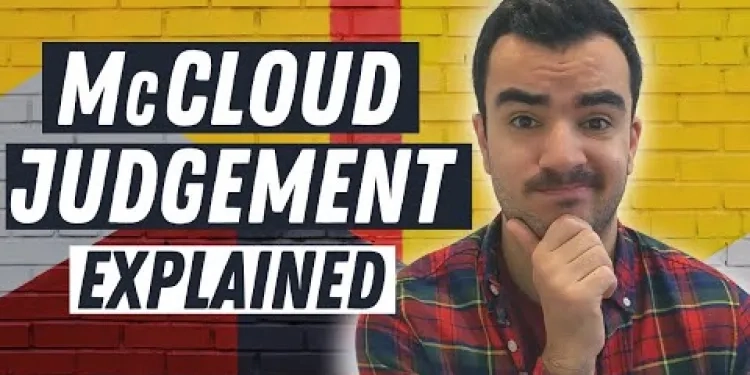
Public Sector Pension Changes | McCloud Judgement | NHS Pensions etc.
Relevance: 35%
-
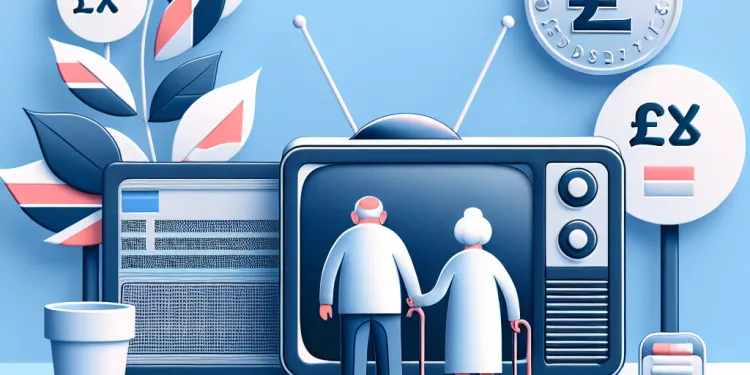
Do pensioners get a free TV license?
Relevance: 35%
-
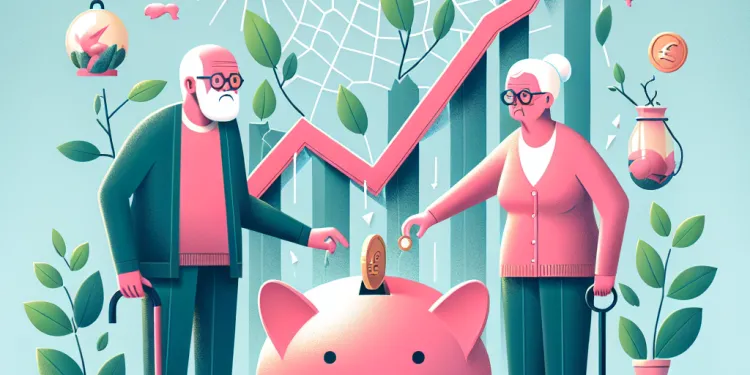
Why do pension funds go bust?
Relevance: 35%
-
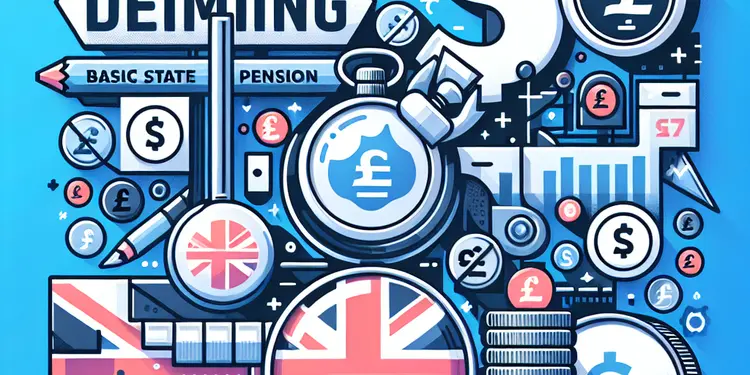
How do I claim the basic State Pension?
Relevance: 35%
-

How is the pension calculated for firefighter schemes?
Relevance: 35%
-

Are firefighter pension benefits adjusted for inflation?
Relevance: 35%
-

Do firefighters have to contribute to their pension schemes?
Relevance: 35%
-

What is the state pension age in the UK in 2026?
Relevance: 35%
-
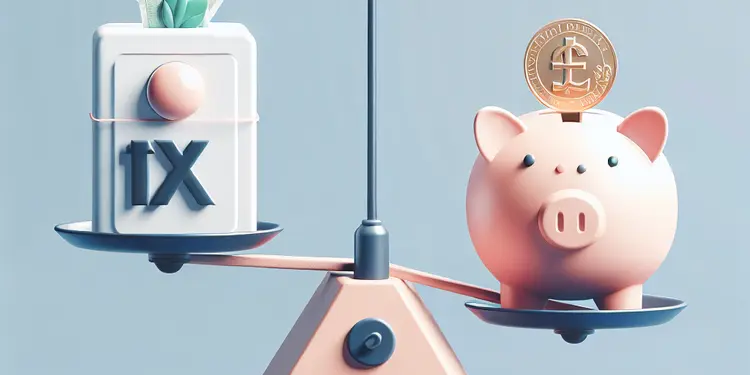
Do I pay tax on the basic State Pension?
Relevance: 35%
-

What is the normal pension age for firefighters in the UK?
Relevance: 35%
-
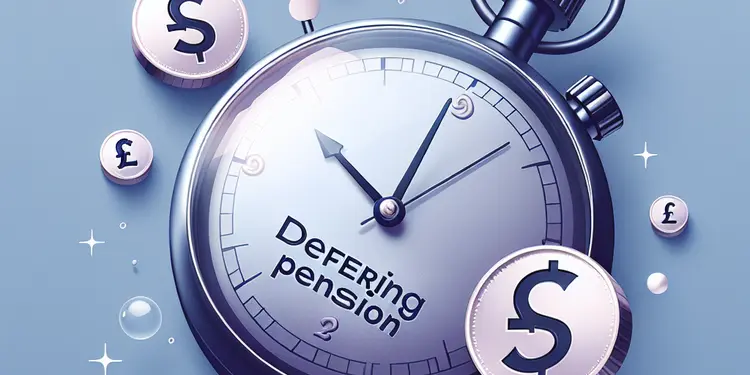
Can I defer my basic State Pension?
Relevance: 35%
-
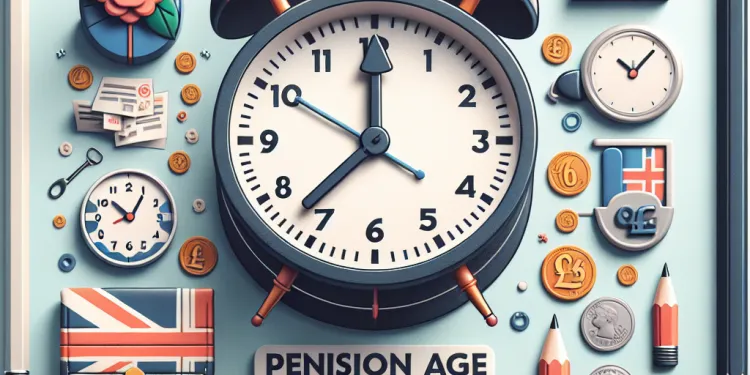
Are men and women's pension ages equalized?
Relevance: 34%
-
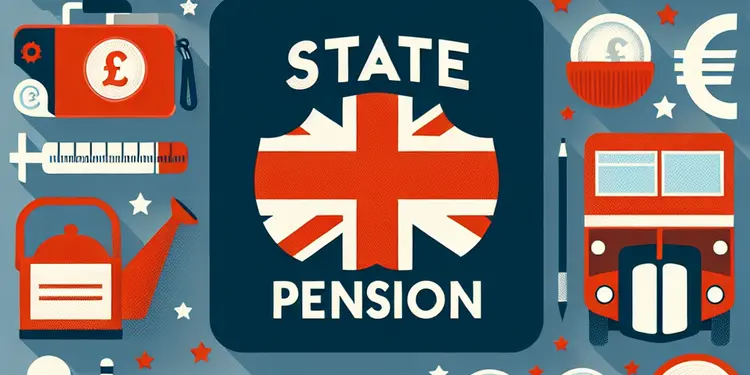
Is the basic State Pension enough to live on?
Relevance: 34%
-

Who is eligible for the basic State Pension?
Relevance: 34%
-

Are government pension advisory services trustworthy?
Relevance: 34%
-
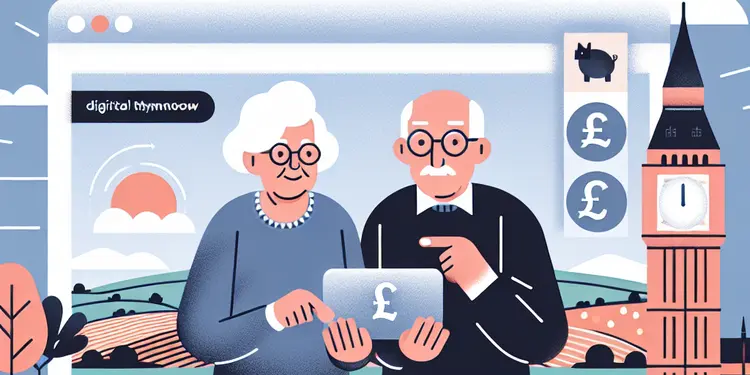
Are there free online resources for pension advice?
Relevance: 34%
-

Can my employer provide pension advice?
Relevance: 34%
-

Will pension contribution allowances be affected in 2026?
Relevance: 34%
-

What is the importance of a pension advisor's accreditation?
Relevance: 34%
-

What is a defined benefit pension scheme?
Relevance: 34%
-
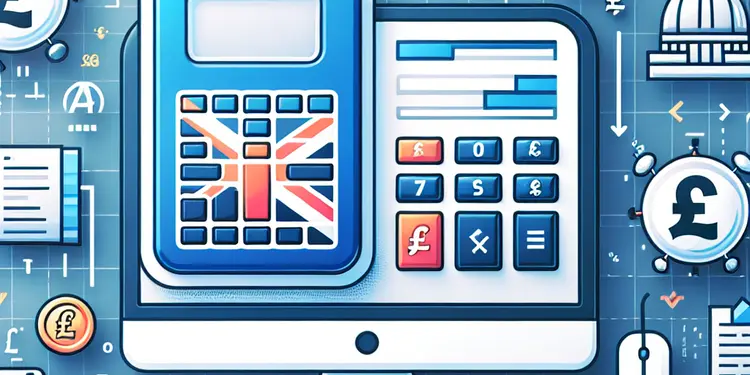
How do online pension calculators help?
Relevance: 34%
-

Will the state pension amount change with the age increase?
Relevance: 34%
-

Can firefighter pension benefits be divided in a divorce?
Relevance: 34%
-
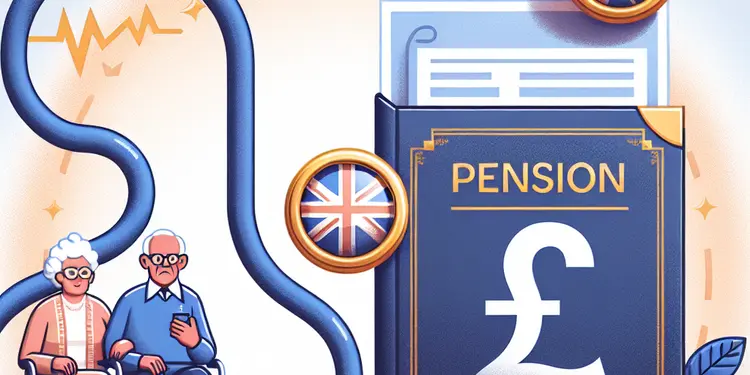
Can my spouse inherit my basic State Pension?
Relevance: 34%
-
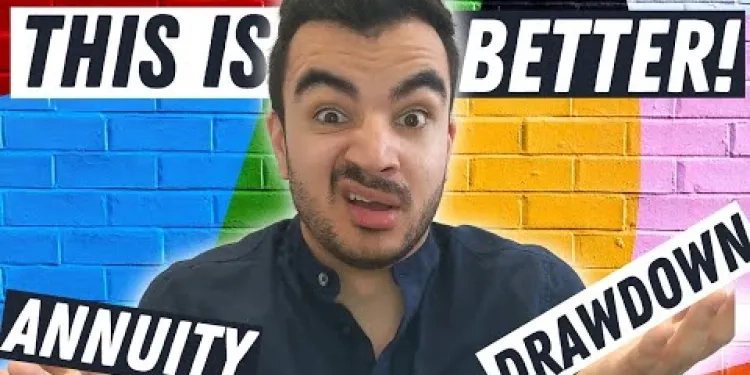
Drawdown vs Annuities | Pensions UK | Which Is Better?
Relevance: 34%
What Happens When Pensions Go Bust in the UK
Understanding Pension System Collapse
When we talk about pensions going bust, it's a scenario where a pension fund becomes unable to meet its financial obligations to its members. This can occur due to mismanagement, poor investment performance, or sudden economic downturns. In the UK, pensions can be either public, such as the State Pension, or private, including workplace and personal pensions. A collapse in the pension system can have far-reaching consequences on individuals’ financial stability and the broader economy.
Impact on Retirees
If a pension fund collapses, current retirees who rely heavily on their pension income may face significant financial challenges. Many pensioners could see their expected income reduced, which might lead to difficulties in covering living expenses, medical costs, or housing. This can severely affect their quality of life and create a sudden reliance on state benefits as a temporary cushion. The social safety nets, however, may not fully compensate for the loss, potentially stretching government resources even thinner.
Effect on Future Pensioners
For those not yet retired, a pension collapse can mean uncertainty about future income. Workers who are building their pension pots may find that their projected retirement savings diminish, which could alter their retirement plans significantly. This uncertainty might prompt individuals to increase personal savings or seek alternative investments, placing additional strain on personal resources and financial planning. It could also shake confidence in pension schemes as a whole, impacting future participation rates.
Government and Regulatory Response
In the event of a pension system collapse, the UK government and regulatory bodies typically intervene to mitigate the situation. The Pension Protection Fund (PPF), for instance, provides a safety net for members of defined benefit pension schemes. However, the protection is capped and does not always cover 100% of the expected pension. Additionally, regulators may strengthen oversight, introducing stricter rules on pension fund management to prevent similar occurrences. These actions, while helpful, may not be able to fully restore lost pension values, but they are crucial in maintaining trust in the system.
Long-term Consequences
The long-term consequences of pension fund collapses can be severe. They may lead to increased poverty rates among the elderly and heighten inequality, as wealth isn’t evenly distributed to begin with. Battered trust in pension schemes can lead to less engagement with retirement saving plans. Moreover, it can place additional burdens on younger generations, who may have to support older family members financially. This complex interplay highlights the importance of robust pension management and the need for diversified retirement planning.
What Happens If Pensions Stop Working in the UK
Understanding a Pension System Crash
Pensions are savings that people use when they stop working. Sometimes, these pension savings can stop working properly. This happens if the money is not looked after well, if investments do badly, or if the economy gets worse suddenly. In the UK, there are two types of pensions: public, like the State Pension, and private, like pensions from your job or personal savings. If pension savings fail, it can cause big problems for people’s money and the whole economy.
Impact on People Who Have Retired
If pension savings stop working, people who have already retired and need this money could have money troubles. They might get less money than they expected, which can make it hard to pay for things like food, healthcare, or a home. This might make them need help from the government. But government help might not be enough to replace the lost money, which can strain government funds.
Effect on People Who Haven't Retired Yet
For people still working, pensions not working can make their future money plans uncertain. Workers might find their planned pension savings getting smaller, affecting their plan to stop working. They might start saving more money on their own or look for other ways to invest. This means they will have to think carefully about where to put their money. Also, they might trust pension plans less and join fewer new pension plans.
What the Government and Rules Do
If pensions stop working, the UK government usually steps in to help. The Pension Protection Fund (PPF) can help people in certain types of pension plans. But it doesn’t always give all the money that was promised. The regulators might also watch pension plans more closely to stop this from happening again. These steps help a bit but might not make up for all the lost money. They do help people feel safer about their pensions.
Long-term Effects
If pension savings stop working for a long time, it can cause big problems. It can lead to more older people living in poverty. Some people might also stop saving for retirement because they don’t trust pension plans anymore, which is a problem. Younger people might have to help older relatives with money. This shows how important it is to have good pension management and think about many ways to save for retirement.
Frequently Asked Questions
What happens when a pension fund goes bust in the UK?
If a pension fund goes bust in the UK, the Pension Protection Fund (PPF) steps in to protect members of defined benefit pension schemes. The PPF pays compensation to members, although it may not be the full amount originally promised by the pension scheme.
What is the Pension Protection Fund?
The Pension Protection Fund (PPF) is a UK government-established fund that provides compensation to members of eligible defined benefit pension schemes whose employers become insolvent and cannot fulfill their pension obligations.
Who is eligible for compensation from the PPF?
Members of defined benefit pension schemes are eligible for compensation from the PPF if their employer becomes insolvent and the pension scheme cannot meet its obligations.
How does the PPF determine the amount of compensation?
The PPF pays 100% compensation to those who have reached their pension age, while those below pension age typically receive 90% of their pension benefits, subject to a cap.
Are defined contribution pensions protected if the provider goes bust?
Defined contribution pensions are usually not covered by the PPF. However, they are protected under the Financial Services Compensation Scheme (FSCS) up to certain limits if the provider collapses.
What is the impact on pensioners if a pension system collapses?
If a pension system collapses, pensioners may face reduced benefits, delayed payments, and increased uncertainty around their financial security. The PPF can mitigate the impact for defined benefit schemes.
Why do pension funds go bust?
Pension funds may go bust due to factors such as poor investment performance, insufficient contributions, demographic changes, or the insolvency of sponsoring employers.
Can pension scheme members influence how their pension is managed?
Members typically have limited direct influence over how their defined benefit pension is managed, but in defined contribution schemes, they may have some choice over investment options.
What is a defined benefit pension scheme?
A defined benefit pension scheme promises a specified monthly benefit at retirement, often based on salary and years of service, and is generally employer-funded.
What is a defined contribution pension scheme?
A defined contribution pension scheme is a retirement plan where contributions are made to an individual account for each member, and benefits depend on the contributions made and the investment performance of the fund.
How does insolvency impact pension funds?
When a company becomes insolvent, it may no longer be able to contribute to its pension scheme, potentially leading to a shortfall in the fund and triggering intervention by the PPF for defined benefit schemes.
Can pensioners lose all their money if a pension provider fails?
It is unlikely that pensioners will lose all their money if a pension provider fails due to protective measures like the PPF and FSCS. However, they may receive reduced benefits.
What can pension fund members do if their fund is at risk of failing?
Members should stay informed about their pension scheme's funding status and seek advice from financial advisors if they have concerns about their fund's stability.
What role does government regulation play in protecting pensions?
Government regulation imposes funding requirements, investment rules, and oversight mechanisms to ensure pensions are managed responsibly and to offer protection via entities like the PPF.
How can individuals protect their retirement savings?
Individuals can protect their retirement savings by diversifying their investments, regularly reviewing their pension performance, and considering additional savings routes such as ISAs or personal pension plans.
What happens when a pension fund runs out of money in the UK?
A pension fund is money saved for when you stop working.
In the UK, if a pension fund runs out of money, there is help for people.
A group called the Pension Protection Fund (PPF) can help.
The PPF gives some money to people whose pension fund has run out.
This money helps to make sure you still get paid when you are not working anymore.
If you want to know more, you can ask for help from a family member or a friend.
Using pictures or simple charts can also help you understand better.
If a pension fund runs out of money in the UK, the Pension Protection Fund (PPF) helps. The PPF will give money to people who are part of some pension plans. They may not get all the money they were promised, but the PPF will still help.
What is the Pension Protection Fund?
The Pension Protection Fund (PPF) is an organization that helps people if their workplace pension plan cannot pay them.
If a company goes out of business and cannot pay the pensions it promised, the PPF helps make sure people still get some of the money.
Here are some ways to understand this better:
- Think of the PPF like a safety net. It catches people if their company's pension plan fails.
- Use pictures or diagrams to see how the PPF helps. This can make it easier to understand.
- Ask someone you trust to explain pension plans and the PPF to you. They can help make it clearer.
The Pension Protection Fund (PPF) is a group made by the UK government. It helps people who have a special type of pension, called a defined benefit pension, if their company cannot pay the pension anymore because it doesn't have enough money.
Who can get money from the PPF?
If a company can't pay its pension, the PPF can help. Here is who can get money:
- People with a pension: If you have a pension from a company that can't pay, you might get help.
- Check your age: The rules might be different if you are under or over a certain age.
- Need help? You can ask someone to explain if you are not sure.
Tips: You can talk to someone you trust or use tools like a reading app to read this out loud for you.
If the company you worked for has no money and can't pay your pension, you can get help from the PPF. This is for people in special pension plans called defined benefit pension schemes.
How does the PPF decide how much money to give?
The PPF helps pay your pension money. If you are old enough to get your pension, it pays all your money. If you are younger and not getting your pension yet, it pays most of your money, but not all.
Are your savings safe if the pension company runs out of money?
If you have a pension where you put money in each month, it is called a 'defined contribution pension.' Sometimes, people worry about what happens if the company looking after their pension has money troubles.
Good news! Your pension savings are usually safe. There are special rules to protect your money.
Here are some tips to help:
- Ask someone you trust to explain things to you.
- Use simple language when thinking about money.
- Look for pictures or videos that explain pensions.
- Talk to a financial advisor for advice.
Defined contribution pensions are a type of savings for when you stop working. They are usually not covered by the PPF, which helps protect some pensions. But don't worry! There is another safety net. If the company that manages your pension goes out of business, the Financial Services Compensation Scheme (FSCS) can help. They will protect your money up to a certain amount.
It might be helpful to use tools like audiobooks or reading apps to make reading easier. You can also ask someone for help if you have questions.
What happens to pensioners if the pension system stops working?
If the pension system stops, people who get pensions might have problems. Here is what could happen:
- Pensioners might not get their money. This money helps them buy things they need.
- Without the money, it can be hard to pay for food, bills, and medicine.
- Pensioners might need to find other help or support from family or community services.
Here are some ways to make it easier for pensioners:
- Ask family or friends for help or advice.
- Use government or community programs that help with money or food.
- Talk to someone who knows about money for advice.
If a pension system breaks down, retired people might get less money. They might also have to wait longer to get paid. This can make them worry about having enough money. The PPF can help make things better for pensions that promise a set amount of money.
Why do pension funds run out of money?
A pension fund is a big pot of money saved for people when they stop working. Sometimes, these funds run out of money.
This can happen if:
- The fund does not get enough money from people and companies.
- The fund spends too much money too quickly.
- Investments made by the fund lose money, like buying shares of a company that doesn't do well.
- More people are living longer and taking money from the fund for more years.
If you want to understand more:
- Use videos and simple guides online.
- Ask someone to explain in simple words.
Pension funds can run out of money for different reasons. Some reasons are bad investments, not enough money saved, changes in the number of people retiring, or if the companies paying into the fund can't pay anymore.
Can people with pensions help decide how their money is used?
If you have a pension, you might want to know if you can say how it is handled. Here is an easy way to understand it:
Do you have a choice? Sometimes, people with pensions can tell the company managing their money what they want. They might ask to invest in things that are good for the environment or in companies they like.
How can you get involved? You can join meetings or fill out forms to share your ideas. Some pension plans let members vote on certain choices.
Ask for help: If you find it hard to understand, ask someone you trust to explain it to you. You can also use tools like videos or simple charts to learn more.
Members usually don’t have much say in controlling their defined benefit pension. But in defined contribution plans, they might get to choose how their money is invested.
What is a defined benefit pension plan?
A defined benefit pension plan is a type of savings for when you stop working. It gives you money every month after you retire.
This plan promises a set amount of money every month. The amount depends on how long you worked and how much you earned.
If you need help understanding your pension plan, you can:
- Ask someone you trust to explain it.
- Use simple guides or videos online.
- Talk to a person who knows a lot about pensions.
A defined benefit pension plan is a way to save money for when you stop working. It promises you a set amount of money each month when you retire. This amount is usually based on how much you earned and how long you worked. Your employer usually puts money into this plan for you.
To help understand more about pensions, you can try asking a family member or friend for help. There are also tools like videos or apps that can make this topic easier to understand.
What is a defined contribution pension scheme?
A defined contribution pension scheme is a way to save money for when you stop working.
You and your employer pay money into your pension. This money is called contributions.
Over time, this money can grow. You will use this money in the future when you retire.
To understand your pension better, you can ask someone you trust for help. This could be a family member, a friend, or a pension advisor.
A defined contribution pension scheme is a savings plan for retirement. This means you save money for when you stop working. Every member has their own account. The money you get when you retire depends on how much you and others put into your account and how well the money grows with the investments.
You can use tools like a savings calculator to help you understand how much you need to save. Ask someone you trust to help explain it if you're not sure.
What happens to pensions when a company runs out of money?
When a company runs out of money, it is called being "insolvent."
If this happens, the company might not have enough money to pay into pension funds.
This can affect the money that workers get when they retire.
It is important to understand what could happen to pensions in this situation.
Using pictures or talking to a grown-up can help you understand better.
When a company runs out of money, it might not be able to pay into its workers' pension plan anymore. This can mean there's not enough money in the pension fund. When this happens, the PPF can step in to help with certain types of pensions.
Tools and tips to help understand:
- Use simple words and short sentences.
- Take your time reading each part.
- Use a ruler or piece of paper to keep your place when reading.
- Ask someone to read it with you if you get stuck.
Can older people lose all their money if their pension company goes wrong?
It is not likely that people with pensions will lose all their money if their pension company has problems. This is because of safety nets like the PPF and FSCS. But they might get less money than they expected.
What can you do if your pension fund is in trouble?
If you think your pension fund is in trouble, stay calm. Here are some simple things you can do:
- Talk to someone at your pension fund. Ask them for help and information.
- Look at letters or emails from your pension fund. They might have news.
- Ask a family member or friend to help you understand what's going on.
- Use online tools to help you read and understand the information.
- Call a free advice line for help with pensions.
These steps can help you feel better and understand your options.
Members should know how much money is in their pension. If they are worried about their money, they should talk to someone who knows about finances.
How does the government help keep pensions safe?
The government makes rules to help keep your pension money safe.
They check that companies follow these rules.
If companies don’t follow the rules, the government can take action.
This makes sure you get your pension money when you need it.
To learn more, you can use pictures and videos. These tools make it easier to understand.
The government has rules to make sure pension money is safe and used in the right way. These rules say how money should be gathered and invested. There are also checks to make sure the rules are followed. These checks help protect people’s pensions. Groups like the PPF can help if something goes wrong.
Some helpful tools and techniques for better understanding can include breaking down information into smaller chunks, using visual aids like charts or diagrams, and using simple language to explain complicated ideas.
How can people keep their retirement money safe?
It is important to keep your savings for when you stop working safe. Here are some simple tips:
- Save a little bit of money every month. It helps your savings grow.
- Use a bank or a savings account that you trust.
- Try not to spend your savings unless you need to.
- Ask someone you trust for advice about saving money.
- Use easy tools like a budget to help you plan your money.
These steps can help keep your money safe for the future.
You can keep your money safe for when you stop working. Here’s how:
1. Don’t put all your money in one place. Use different banks or investments.
2. Check how your savings are doing often.
3. Save more by using things like ISAs or personal pension plans.
Tools like online banking apps can help you keep an eye on your money.
Useful Links
This website offers general information and is not a substitute for professional advice.
Always seek guidance from qualified professionals.
If you have any medical concerns or need urgent help, contact a healthcare professional or emergency services immediately.
Some of this content was generated with AI assistance. We’ve done our best to keep it accurate, helpful, and human-friendly.
- Ergsy carfully checks the information in the videos we provide here.
- Videos shown by Youtube after a video has completed, have NOT been reviewed by ERGSY.
- To view, click the arrow in centre of video.
- Most of the videos you find here will have subtitles and/or closed captions available.
- You may need to turn these on, and choose your preferred language.
- Go to the video you'd like to watch.
- If closed captions (CC) are available, settings will be visible on the bottom right of the video player.
- To turn on Captions, click settings .
- To turn off Captions, click settings again.
More Items From Ergsy search
-

What is the impact on pensioners if a pension system collapses?
Relevance: 100%
-

What Happens When Pensions Go Bust! | Pension System Collapse UK
Relevance: 89%
-

How does insolvency impact pension funds?
Relevance: 42%
-

Is the Pension Wise service reliable for pension advice?
Relevance: 39%
-

What is the basic pension in the UK?
Relevance: 38%
-

Can pensioners lose all their money if a pension provider fails?
Relevance: 38%
-

Is there a difference between the basic State Pension and the new State Pension?
Relevance: 38%
-

Pension rights for Firefighters in the UK
Relevance: 37%
-

Police Pension Explained
Relevance: 37%
-

Can pension scheme members influence how their pension is managed?
Relevance: 37%
-

Can I get pension advice directly from pension fund providers?
Relevance: 36%
-

Unfreezing the Truth The UK's Frozen Pensions
Relevance: 36%
-

What is the Pension Protection Fund?
Relevance: 36%
-

Are firefighter pension benefits taxable?
Relevance: 36%
-

Will I qualify for the new state pension?
Relevance: 36%
-

Public Sector Pension Changes | McCloud Judgement | NHS Pensions etc.
Relevance: 35%
-

Do pensioners get a free TV license?
Relevance: 35%
-

Why do pension funds go bust?
Relevance: 35%
-

How do I claim the basic State Pension?
Relevance: 35%
-

How is the pension calculated for firefighter schemes?
Relevance: 35%
-

Are firefighter pension benefits adjusted for inflation?
Relevance: 35%
-

Do firefighters have to contribute to their pension schemes?
Relevance: 35%
-

What is the state pension age in the UK in 2026?
Relevance: 35%
-

Do I pay tax on the basic State Pension?
Relevance: 35%
-

What is the normal pension age for firefighters in the UK?
Relevance: 35%
-

Can I defer my basic State Pension?
Relevance: 35%
-

Are men and women's pension ages equalized?
Relevance: 34%
-

Is the basic State Pension enough to live on?
Relevance: 34%
-

Who is eligible for the basic State Pension?
Relevance: 34%
-

Are government pension advisory services trustworthy?
Relevance: 34%
-

Are there free online resources for pension advice?
Relevance: 34%
-

Can my employer provide pension advice?
Relevance: 34%
-

Will pension contribution allowances be affected in 2026?
Relevance: 34%
-

What is the importance of a pension advisor's accreditation?
Relevance: 34%
-

What is a defined benefit pension scheme?
Relevance: 34%
-

How do online pension calculators help?
Relevance: 34%
-

Will the state pension amount change with the age increase?
Relevance: 34%
-

Can firefighter pension benefits be divided in a divorce?
Relevance: 34%
-

Can my spouse inherit my basic State Pension?
Relevance: 34%
-

Drawdown vs Annuities | Pensions UK | Which Is Better?
Relevance: 34%


